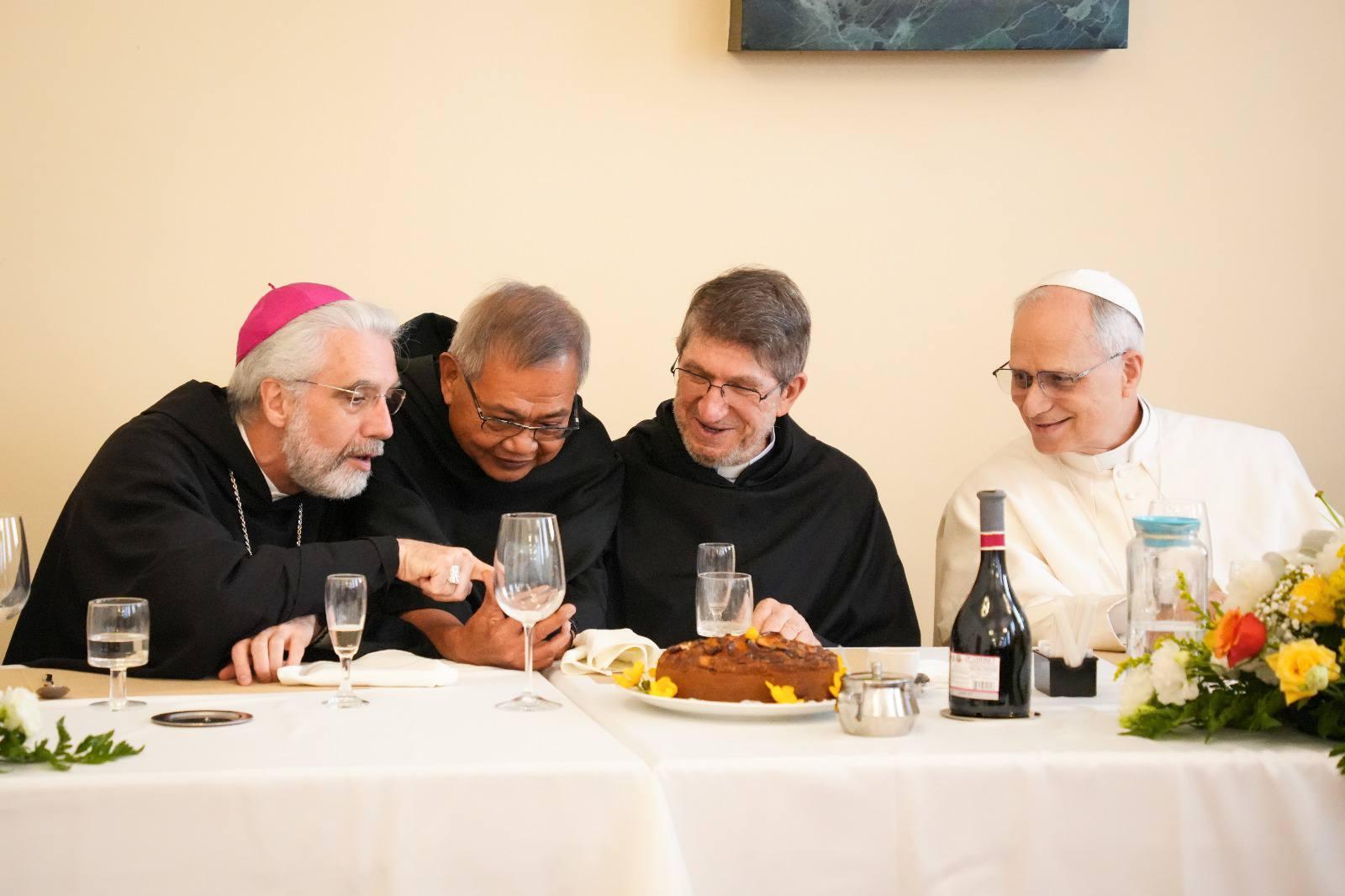ROME – Early on in Pope Francis’s papacy, it became clear that “discernment” would be one of his buzzwords, and the Ignatian concept went on to become a bedrock of his Magisterium and pastoral decision-making process.
Discernment is a loaded term for the Jesuits, carrying with it a specific interpretation and certain rules for how to exercise it according to Ignatian spirituality, as laid out by St. Ignatius in his famed Spiritual Exercises.
This emphasis on discernment became so central to Francis’s papacy, it was difficult to understand him and many aspects of his papacy without having at least a basic knowledge about the Jesuit spin on it.
RELATED: To understand Pope Francis, you have to understand the Jesuits
In much the same way, Pope Leo XIV – who like Francis, also belongs to a religious order, the Augustinians – the Augustinian sense of “community” is quickly becoming a defining aspect of Leo’s life and ministry.
Almost immediately after his election, Pope Francis had a private meeting with the Father General of the Jesuit order, Spanish Father Adolfo Nicolás, and he also made a visit to the Jesuit curial headquarters in Rome, located a stone’s throw from the Vatican walls.
Likewise, Pope Leo XIV after his election May 8 made a surprise visit to the Augustinian headquarters in Rome, just a few steps from the Vatican, where he celebrated Mass and joined them for lunch, as he had done almost daily as a cardinal.
He had a private May 16 audience with the Augustinian Prior General, Spanish Father Alejandro Moral, whose 70th birthday celebratory lunch he attended Sunday, June 1, again joining the Augustinian friars at the Augustinian headquarters and St. Monica International College adjoined to it for festivities.
As the Jesuits place a strong emphasis on the process of discernment, the Augustinians emphasize a harmonious community life before all else.
The Rule of St. Augustine, written around the year 400, making it the oldest monastic rule in existence, outlines the essentials for religious life in community as guided by the Gospel, rather than spelling out specific instructions for details such as schedule, furniture arrangement or the kinds of foods that can be consumed.
In a sense, Augustinian spirituality is almost entirely centered on community life, and how to live it well.
The preface of St. Augustine’s Rule stresses the need to place love of God and neighbor before all else, as based on Jesus’s instructions in the Gospel.
In Chapter one, the Rule immediately states that for friars, “The main purpose for your having come together is to live harmoniously in your house, intent upon God, with one heart and one soul.”
Friars are called, among other things, to share what they have with the rest of the community, to maintain a strong prayer life, and to support one another in their spiritual journeys, striving to avoid internal conflict and to apologize to one another when needed.
Community life is described by the Augustinians themselves as “the axis” around which their religious life turns, living “harmoniously together, united by a single soul and a single heart, seeking God together and open to the service of the Church.”
The goal is to imitate the first community of apostles who came together and shared all things in common while ministering to God’s people, being “of one mind and heart on the way to God.”
It is becoming increasingly clear that this sense of community and life in common is central to Pope Leo, who not only visited the Augustinian community daily in Rome as cardinal, but he also often took meetings there and has visited twice since his election a month ago, including once to celebrate the birthday of his close friend, Moral.
During the pre-conclave general congregation meetings held in the weeks before the electing cardinals entered the Sistine Chapel to cast their votes for the next pontiff, two of the key words that routinely emerged from those conversations were communion and unity.
In a deeply divided and polarized society, and Church, the cardinals saw the need to seek a path of unity and communion, and they were looking for a candidate whom they believed could help the Church bridge its internal divides and lead faithful down a clear path toward unity.
It is perhaps no surprise, then, that an Augustinian was elected, whose formation in a harmonious “life in common” could lay the groundwork for unity that so many cardinals saw as of paramount importance for the Church at this time.
Pope Francis in emphasizing discernment encouraged faithful to find a path to God in any circumstance, even amid life’s most complex situations and problems.
By stressing the importance of community, if not in words, in actions, even subconsciously, Pope Leo is inviting faithful to walk this path together, in harmony rather than division, and he is doing it with the heart of an Augustinian.
Follow Elise Ann Allen on X: @eliseannallen















